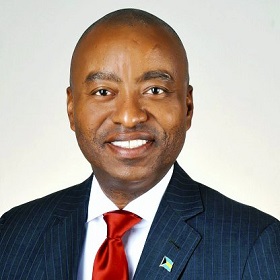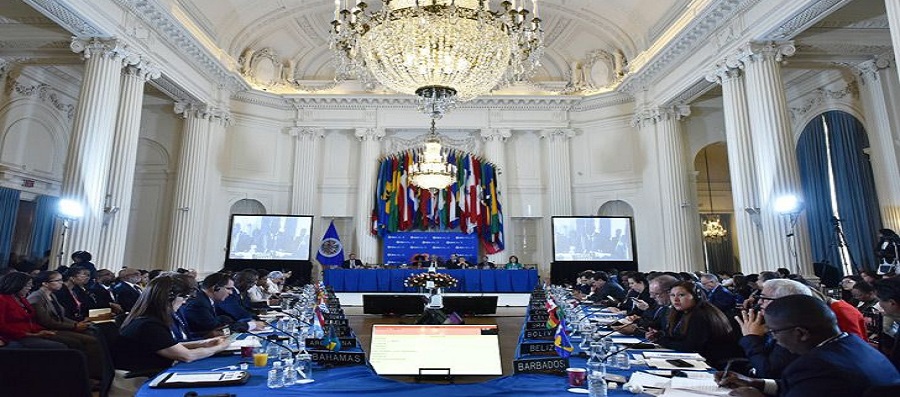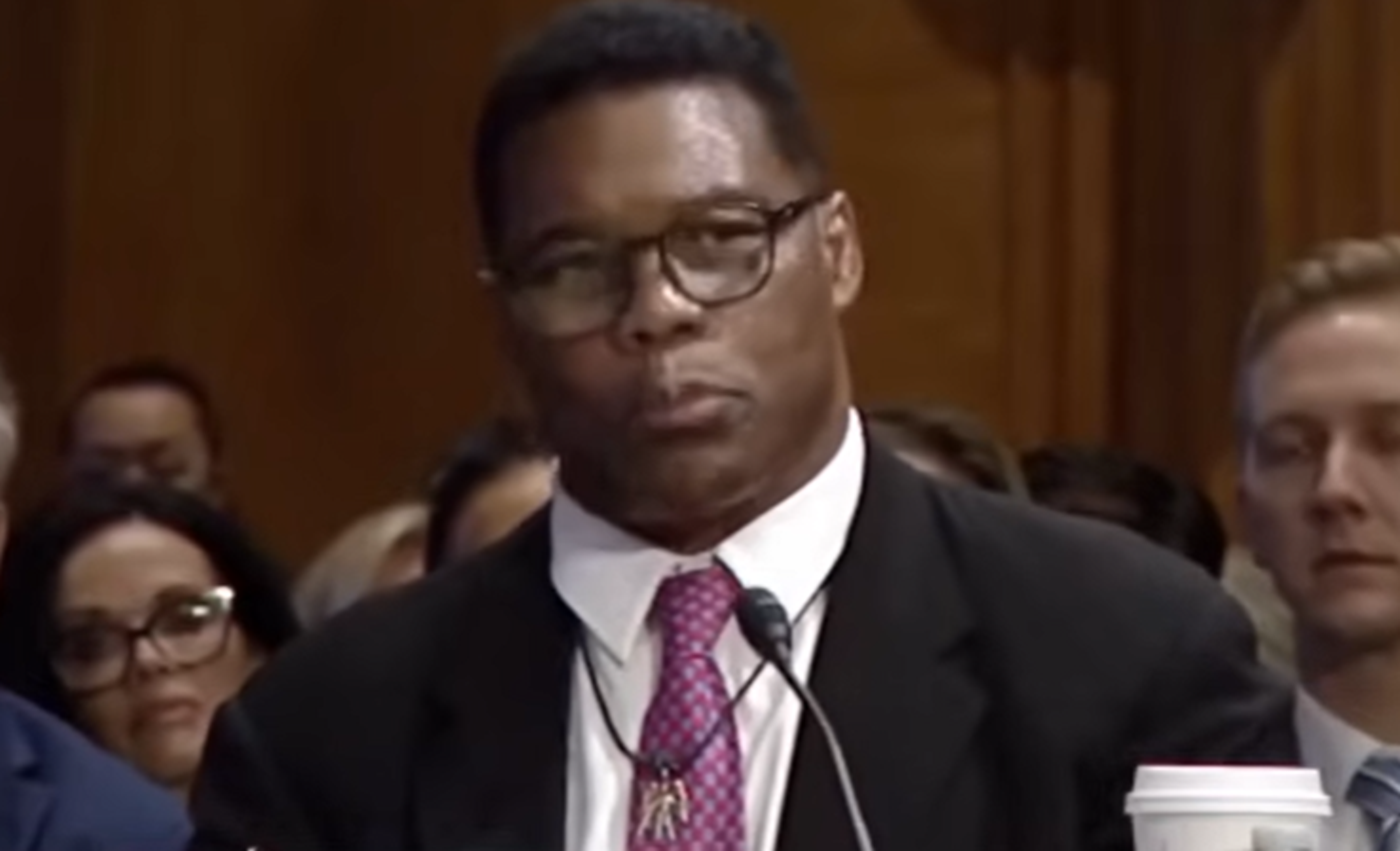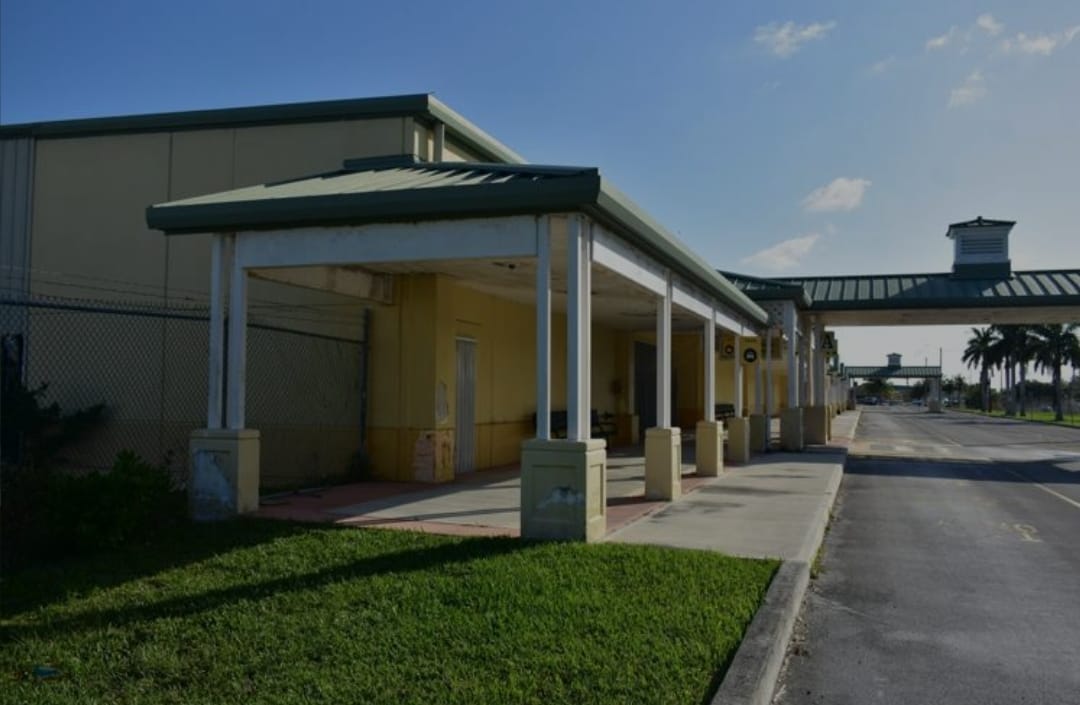#Washington,DC, June 8, 2018 – United States of America –
Mr. President
 Colleague Foreign Ministers,
Colleague Foreign Ministers,
Mr. Secretary General and Assistant Secretary General,
Ambassadors and other diplomatic representatives,
Other distinguished guests, Ladies and Gentlemen
Good afternoon,
Introduction
Mr. President,
The Bahamas also stands in solidarity with the people of Guatemala and assures them of our prayers and thoughts during this time of hardship.
Over a century ago in 1889, 18 American States, nurturing the growing sense of Pan-Americanism, gathered in Washington DC to bring to fruition the vision of a more integrated and cooperative hemisphere through a Pan American Union.
The dialogue that was sparked at that time amongst sovereign States of the Americas and continues today, was focused on mechanisms for peace, pacific settlement of disputes, respect for human rights and democracy, improving economic prosperity and fostering communication amongst States.
Evolution of the OAS
Mr. President,
Despite the individual and unique characteristics that define the countries of the Americas, The Bahamas continues to believe that this organization has a critical role to play in world, hemispheric and regional affairs.
As with any institution, however, change is required over time in order to maintain relevance.
Over the past 70 years, this Organization has weathered many economic and political storms but and has steadily grown in membership from the original 18 to incorporate Caribbean Member States and eventually the 35 independent States of the Hemisphere.
While we hold firm to the tenets upon which this Organization was founded, there now exists a rich diversity within our membership which must be reflected in all facets of the Organization – in its agenda, in the mandates given to the Secretariat and its composition. In doing so, we move towards an organization focused on meeting the real needs of its membership, whether developed or developing.
Development work at the OAS
Mr. President,
 For many of the small member States like The Bahamas, the OAS is one of the few global institutions where there is broad accessibility to technical assistance, particularly for development projects. Compared to other multilateral bodies, the OAS maintains comparative advantages and provides value-added in the areas of capacity building, technical cooperation and support for human development. In this regard, The Bahamas will continue to support the Organization’s work on Scholarships and its Training Programme and the Inter American Education Agenda, which we played a role in crafting as Chair of the Inter American Committee on Education. In light of the increasing vulnerability of the region to natural disasters, The Bahamas is also pleased with our agreement to mandate the OAS strengthens its disaster response mechanisms. Similarly, we are pleased to support the mandate on Non-Communicable Diseases.
For many of the small member States like The Bahamas, the OAS is one of the few global institutions where there is broad accessibility to technical assistance, particularly for development projects. Compared to other multilateral bodies, the OAS maintains comparative advantages and provides value-added in the areas of capacity building, technical cooperation and support for human development. In this regard, The Bahamas will continue to support the Organization’s work on Scholarships and its Training Programme and the Inter American Education Agenda, which we played a role in crafting as Chair of the Inter American Committee on Education. In light of the increasing vulnerability of the region to natural disasters, The Bahamas is also pleased with our agreement to mandate the OAS strengthens its disaster response mechanisms. Similarly, we are pleased to support the mandate on Non-Communicable Diseases.
It is our considered view that the OAS will always have a primary responsibility for hemispheric agenda setting across the Inter-American system and an improved OAS must focus on developing strategic and synergistic partnerships between PAHO, IDB, and IICA and other institutions.
Multidimensional Criteria for Poverty and Development
Mr. President,
The Bahamas joins others in lauding the adoption of the Resolution on ‘Incorporating Multidimensional Criteria for Measuring Poverty and Development’ which also references critical issues for the CARICOM region such as derisking and the loss of correspondent banking relations and, more broadly, vulnerability to the effects of climate change.
We note that there is growing acknowledgement of the inadequacy of the current income-predicated methodology used by many International Financial Institutions (IFIS) to assess development level and need and to make decisions regarding concessional lending and access to aid. We commend reforms underway in this direction, such as the IDB’s introduction of their macro development vulnerability index, which has introduced vulnerability assessments into their lending decision making criteria as a model for other such institutions.
OAS Budgetary Matters
Mr. President,
Every organization, including the OAS, requires adequate funding in order to function. The Organization cannot continue to merely live from one fiscal crisis to the next.
Despite all of the good that the OAS has done, and the immense potential the Organization has to support Member State efforts, the Organization remains underfunded relative to the mandates that we continue to impose upon it.
 While each Member State, large and small, developed and developing, must have some skin in the game, there must be balanced and due consideration for country peculiarities and external factors that arise from time to time that can impact the ability to meet financial obligations.
While each Member State, large and small, developed and developing, must have some skin in the game, there must be balanced and due consideration for country peculiarities and external factors that arise from time to time that can impact the ability to meet financial obligations.
The time is also ripe for meaningful institutional reform to the Organization, including implementation of International Public-Sector Accounting Standards, relevant improvements to the IT infrastructure of the Organization and enhancing the efficacy of the Permanent Council for monitoring and oversight of the Secretariat.
Towards a 21st Century OAS
Mr. President,
The OAS that we all want is one that is staffed with competent and diverse professionals, undergirded by modern infrastructure, governed by best practices for accounting, fiscal controls and human resources management, and that is at the vanguard of helping Member States with the challenges of perfecting democracy, upholding human rights, guaranteeing citizen security and bolstering sustainable development.
The Bahamas believes that this Organization is the vehicle through which our hemisphere can be greater than the sum of its parts. It falls to us as Member States to ensure that the OAS continues to evolve to meet the challenges of the 21st century and to ultimately ensure the Americas becomes the most democratic, peaceful, egalitarian and prosperous region of the world.
I thank you.


 TCI News5 days ago
TCI News5 days ago
 Bahamas News3 days ago
Bahamas News3 days ago
 Caribbean News3 days ago
Caribbean News3 days ago
 TCI News1 day ago
TCI News1 day ago
 Caribbean News5 days ago
Caribbean News5 days ago











